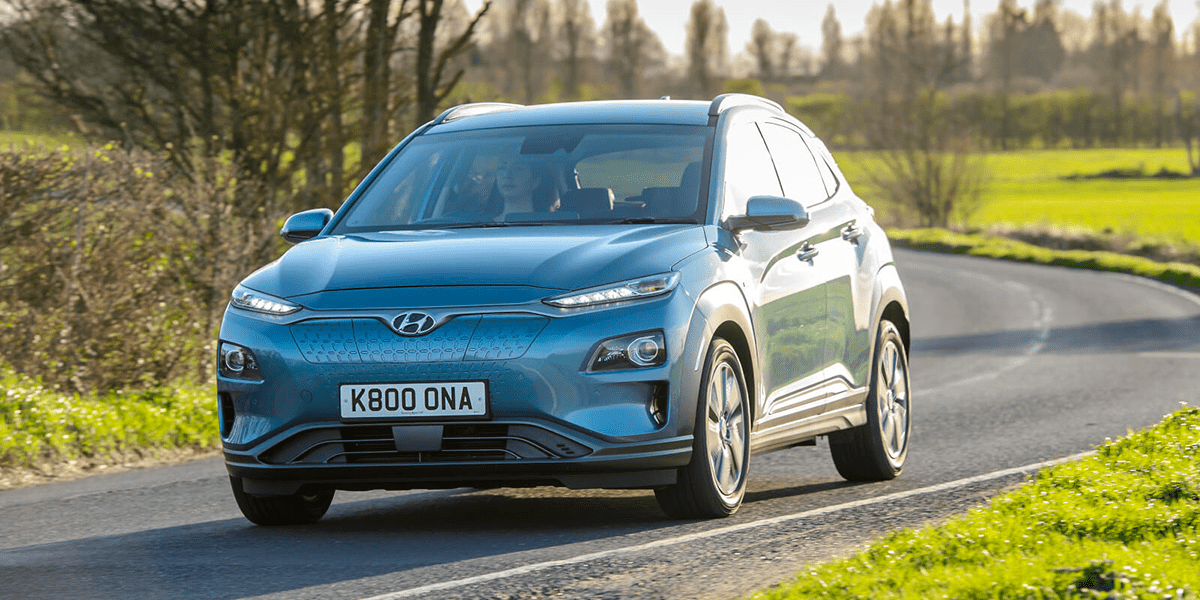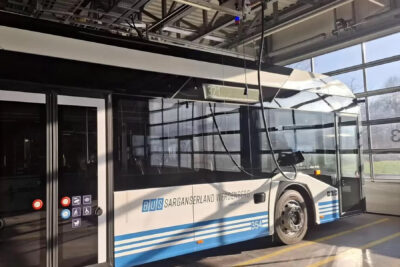Hyundai recalls 25,000 Kona models in Korea
In South Korea, Hyundai has had to recall around 25,000 Kona Electric for a faulty battery part. This follows around 13 incidents involving the LG Chem batteries of Kona electric cars. It is unclear if other markets are affected as well.
++ Kindly find all updates to this article below. ++
The background to the recall is that several vehicles of this model had caught fire. However, according to Reuters, this is a voluntary recall by the car manufacturer, not a recall action ordered by the ministry. Starting 16 October, 25,564 Kona Elektro cars are to be recalled.
According to Reuters, the vehicles in question were built between September 2017 and March 2020. As the Korea Herald writes, it is only supposed to be from 29 September 2019 to 13 March 2020.
What also remains unclear, is the exact scope of the recall. According to the Korea Herald, Hyundai will update “battery related software” and replace the entire battery system during the recall. According to Korea JoongAng Daily, “The automaker plans to look into any anomalies in the batteries after updating its battery management system and immediately replace them if there are any signs of damage, including significant changes to the battery temperature.” Reuters has reported that the recall includes software updates and battery replacements after inspections, involve 25,564 Kona electric vehicles (EVs) built between September 2017 and March 2020 and cites a ministry statement, as do the other two publications.
It would be an important distinction whether batteries are replaced generally or only if the updated BMS detects suspected damage since this would have a massive impact on the recall cost.
It is also still unclear whether vehicles in Germany or elsewhere in Europe or the UK are affected. Since one of the vehicle fires occurred in Austria and one in Canada, North America may – or may not – be affected. Electrive has asked Hyundai for further comment and will update as soon as we have a response.
Until production of the Kona Electric started at the European plant in the Czech Republic, all of the electric cars were imported from Ulsan. This is still the case for the 100 kW version of the Kona Electric, as only the 150 kW Kona is manufactured in Nosovice for Europe.
According to Korea JoongAng Daily the first incident occurred at the automaker’s Ulsan plant on 19 May in 2018. In the meantime, there have been 12 separate incidents involving Kona EVs bursting into flames.
The Korean newspaper wrote that the most recent incident happened last weekend in South Korea when a car burst into flames as it was being charged at an apartment parking lot in Daegu. No one was hurt, but the vehicle was completely immolated.
The batteries are produced by LG Chem, whereby the company said that the exact cause of the fire had not yet been determined. The South Korean battery-making giant said that a reenacted experiment already carried out in cooperation with Hyundai had not let to a fire. The company said the fires could not be attributed to faulty battery cells. Still, it said that it would actively participate in a future investigation with Hyundai to identify the cause of the problem.
Update 12 October 2020:
As the South Korean Yonhap News Agency (YNA) reported over the weekend citing industry circles, Hyundai has now decided to recall all Kona Electric that were voluntarily sold overseas. According to the YNA report, this now affects around 77,000 Kona Electric units built between September 2017 and March 2020.
Hyundai Motor America has probably already submitted a recall plan to the National Highway Traffic Safety Administration (NHTSA) in the USA. It is not yet clear whether a similar step is being taken in Europe. The plan will affect 11,000 vehicles in North America and more than 37,000 vehicles in Europe and 3,000 Kona Electric vehicles in other countries. Regarding the scope of the recall, YNA merely states that Hyundai will probably offer “similar services” overseas, i.e. the software update of the battery management system announced in South Korea and if there are signs of damage, the replacement of the battery.
Meanwhile, Kona Electric’s battery cell supplier, LG Chem, is defending itself against the South Korean Ministry of Transport’s representation. In the original reports, the ministry had cited the faults in the battery cells as the cause. According to LG Chem, the exact cause of the fires has yet to be determined. This would probably involve whether the cell itself is the cause or the control system programmed by Hyundai.
This is exactly what the German publication Auto, Motor und Sport suspects: In the Hyundai Ioniq Electric and the Renault Zoe, batteries “with similar or identical specifications are used”. “However, these two models did not suffer such frequent fire accidents. Accordingly, experts believe that it is necessary to examine the battery cells, the Kona Elektro and the BMS”, says the AMS report.
This assumption that battery management plays a role is also supported by a case about which electrive has received information. After a sudden loss of range (only about 300 kilometres available on a Kona with a 64-kWh battery), a driver suspected a defect in the battery but received no error message. The user found out the individual cells via EVnotify and Torque, revealing that one cell only reached 3.08 volts, while all other cells in the battery pack were at 3.48 volts at the charge level. However, the battery management system did not recognize the individual cell and switched it off.
After the Hyundai workshop had also used this information to measure the defective cell, new BMS software was installed that will possibly be installed when the recall is made. With the improved software that should now detect individual cells, the BMS immediately switched off the affected Kona Electric. Simultaneously, the problem was solved only when an exchange of several battery modules was undertaken. Although there was no fire, there was a combination of a defective cell and a BMS that did not detect the defective cell and switched it off.
Update 27 January 2021:
Hyundai still hasn’t got the battery issues under control. Reports of another burning Kona Electric reach us from South Korea. This time, the story is particularly delicate as this was a model they had already recalled. Hyundai engineers even installed a software update which prove ineffective obviously.
LG Chem supplies the battery cells in the Kona Electric, as they do for the Chevrolet Bolt, for which there was also a recall. While LG Chem has been looking into its responsibility, GM has begun swapping the batteries.
Hyundai is coming under increasing criticism because, unlike GM, the manufacturer appears to want to only apply the software update as a final solution without replacing the defective batteries for cost reasons.
Update 18 February 2021:
After the software update didn’t solve the battery problems, reports in the Korean media now say that Hyundai has decided to replace the entire batteries of all 77,000 Kona Electric vehicles worldwide with the apparently defective LG cells. Hyundai came under criticism for only trying to fix the problem with a software update. The manufacturer is currently in talks with LG Energy Solution about sharing the costs.
LG Energy Solution (or LG Chem at the time) produced the cells, and Hyundai had assembled these cells into the ready-to-install battery pack as well as developing the battery management. Since the cause of the fires has still not been conclusively clarified – defective cells, incorrect installation or faulty management – the industry circles quoted by the Korean media assume that the negotiations on cost-sharing are likely to drag on.
Update 25 February 2021:
Hyundai has now officially launched a recall to replace the batteries of the affected vehicles with suspected faulty LG cells. This affects not only the Kona Electric but also the Ioniq Electric and some examples of the Elec City e-bus. The recall affects a total of 81,701 vehicles, 26,699 of which are in South Korea and 55,002 in other countries.
There are 75,680 Kona EVs (25,083 in South Korea and 50,597 in other countries), 5,716 Ioniq EVs (1,314 in South Korea and 4,402 in other countries) and 305 Elec City, almost all of which (302) are in South Korea.
While the information from Korea makes it sound as if the action has been decided globally, the importers in Europe still disagree. They say that Hyundai Motor Company has decided to recall certain vehicles in Korea. A spokesperson for Hyundai Motor Germany said that the company is “examining whether the recall will be extended to models sold in Europe,” explaining that the decision would be communicated in due course.
Update 4 March 2021:
After Hyundai officially launched a recall a few days ago to replace the batteries of the affected vehicles with suspected faulty LG cells, both companies have now apparently agreed on a split of the costs for the recall: As Yonhap News Agency reports, LG will bear 70 per cent and Hyundai the remaining 30 per cent of the costs amounting to an estimated 900 million US dollars, currently equivalent to 748 million euros.
Update 7 April 2021:
Hyundai’s recall of the Kona EV due to allegedly faulty cells supplied by LG continues to be a bumpy road at best. Some owners told Reuters of delays and poor communication, adding fuel to a long story that yet awaits an adequate solution. We got the brief.
Update 29 June 2021:
Hyundai’s battery problems in electric cars with allegedly faulty LG cells have now led to a class-action lawsuit against the automaker in California. Since the software update provided by Hyundai has not fixed the battery problems and no permanent solution is in sight, the plaintiffs are now demanding that Hyundai Motor America buy back the affected vehicles.
reuters.com, koreaherald.com, koreajoongangdaily.joins.com, yna.co.kr (update), auto-motor-und-sport.de (update in German), insideevs.com (update January 2021), businesskorea.co.kr (update 18 February 2021), yna.co.kr (update 4 March 2021), reuters.com (update 7 April), prnewswire.com (update 29 June 2021)





3 Comments